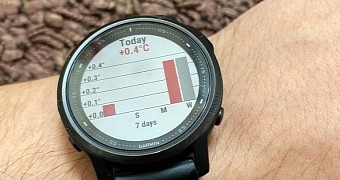2020 has been a totally crazy year, there’s no doubt about it, and now that 2021 is just around the corner, we can finally look back, see what we did wrong, and figure out a way to do things better in the future.
The pandemic has taught us a lot of things, and one of them is to better be prepared for even the simplest things. Who would have thought that a tiny little thing like a mask would eventually divide the world into two parts or that staying away from other people would be a way to actually show we love them?
The technology world has always helped us deal with difficult moments, and when it comes to the COVID-19 pandemic, I can’t help but imagine a million other ways the devices we carry with us 24/7 would be able to keep us protected.
Let’s take smartwatches, for example. Some of them are already able to measure the body temperature, so how come we didn’t use them during these awful times? Not to take them for granted, but to actually be warned that something might not be alright.
I get it, playing the safe card is always the best way to go because obviously, nobody wants to give you a fake alert for something that’s not accurate, but on the other hand, how is a high-temperature notification different from a warning that you need to see a doctor for potential heart problems?
As said, some of the smartwatches out there can already measure the body temperature, and I’ve seen plenty of people checking out the data every once in a while, just to make sure they didn’t get the virus. While I think it’s dangerous to make an obsession out of it, I can understand the panic is what has completely changed the way we interact not only with each other but also with our electronics.
But just like I said when the ECG feature made it to smartwatch, don’t take the data such a device provides for granted. If a smartwatch says you might have a fever, always double-check with a classic thermometer. Always, but always, get in touch with a doctor no matter what such a device tells you.
There’s a reason smartwatches can’t be used as dedicated devices to track your health but rather as a way to be notified when additional investigations might be required: they’re not quite there.
Fitbit Sense, for example, can measure the body temperature, and the way it does is slightly different from what you’d expect. It doesn’t show an actual value for the body temperature, but it only measures a timeline and then keeps track of how the temperature goes up and down to provide you with information according to your own body.
“Everyone has a different temperature baseline. When you wear a compatible Fitbit device to sleep, it checks your skin temperature every minute. When the Fitbit app has at least 3 nights of skin temperature data, it estimates your personal baseline temperature. As you continue to wear your Fitbit device to sleep, the Fitbit app uses up to 30 nights of data to adjust your baseline temperature,” Fitbit explains.
So if anything, smartwatches can help track your health, but nothing they provide should be taken for granted. This is also the reason companies like Fitbit always recommend users to go see a doctor if they’re getting ECG alerts, and what’s more, they can even export the data provided by the smartwatch for a closer look by someone who actually can make an informed decision.

 14 DAY TRIAL //
14 DAY TRIAL //